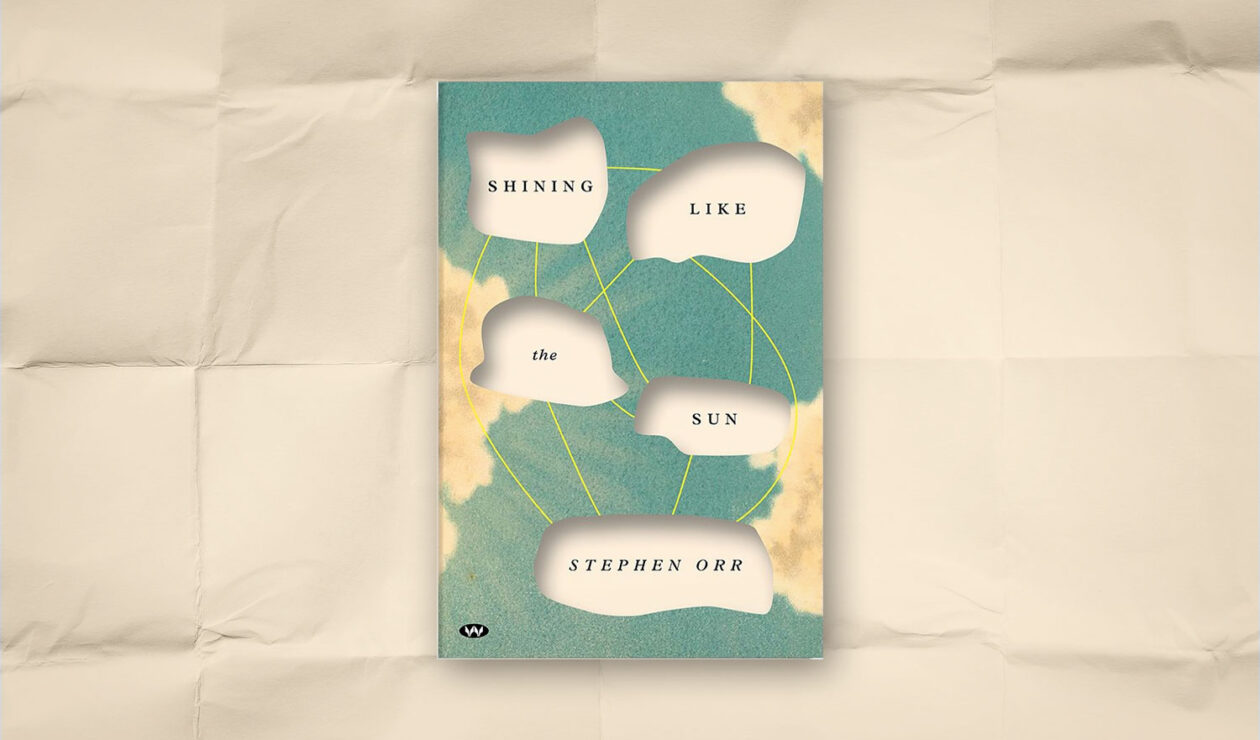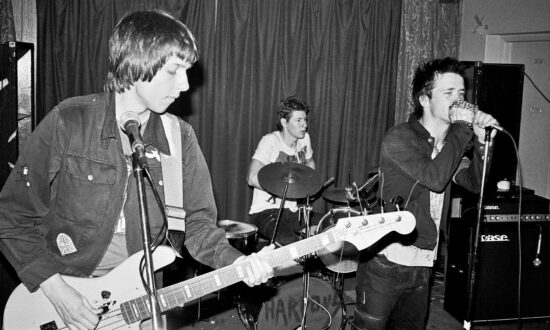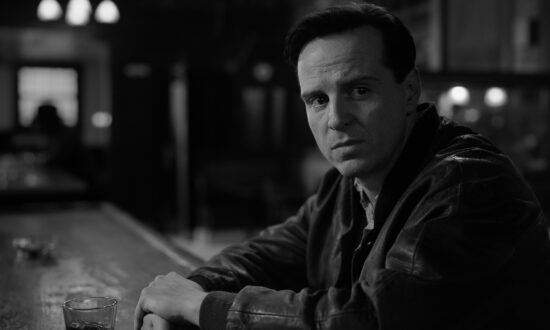There is a distinctly Australian flavour to Stephen Orr’s longstanding fascination with themes of family connection, social transformation, and nostalgia. His work has always focused heavily on the specifics of local settings, but also evokes a blend of gothic unease and quiet melancholy, borne perhaps of Australia’s uniquely low population density and isolated settler-colonial history, which project an uneasy sense of in-betweenness.
There is nowhere so big or grand in Australia as the great metropolises of Europe and America, but so too, the smallest of country towns can juxtapose themselves against the always more distant, existentially confronting environment of the bush, the arid interior – or an uninhabited island off the coast.
Shining Like the Sun pays close attention to that sense of relative centrality and remoteness, while continuing to explore Orr’s signature concerns with communal responsibility and relationships, particularly those of father and son figures. Here, 80-year-old protagonist Wilf Healy is shaped by memories of his father’s exacting, violent temperament and his own son’s accidental death, while struggling with how (or whether) to guide his disengaged great-nephew, Connor – whose mother Orla is sick, with his dad long out of the picture.
“Where are the fathers?” Wilf asks, with revealing self-righteousness, while observing two apparently single mums with “coloured hair, prams, and a small tribe of kids”.
Although not an entirely likeable or enlightened figure, Wilf is a man who seems to be holding together his “junction” of a town through stubborn determination: “Selwyn. Three hundred people coming and going, dying, lost in the cracks.” He performs a variety of either paid or volunteer roles (the exact conditions of each are somewhat unclear) in this liminal community: from driving the school bus, to picking vegetables, delivering mail and medication, or working the bar at Monk’s dilapidated Irish pub with its outdated carpets and cheesy décor.
Obsessed by memories of his childhood home on the remote isle of Louth, long since abandoned, Wilf nevertheless plans on returning there, alone, to escape the connections and responsibilities he simultaneously complains of and could not live without.
Louth represents one anchoring point in a series of increasingly populated, juxtaposed locations including Selwyn, the larger regional centres of Georgetown and Northhead, to Sydney – where Connor might study music – and finally, Los Angeles – where Wilf’s brother Colin escaped to years before. This spectrum of place is possibly the novel’s most affecting element. Wilf’s memories of Louth and eventual return visit with Connor in tow reflect movingly on the power of memory and metaphorical authenticity: the way stories have their “own life, always running away from the truth”.

Get InReview in your inbox – free each Saturday. Local arts and culture – covered.
Thanks for signing up to the InReview newsletter.
Thus, the book works its way through recurring questions about how to choose between (or even balance) a life looking forward, embracing a future of change and risk, or attempting retreat into a familiar past that can never be recaptured as it was, or was imagined to be. Although it never fully resolves these issues, the evocation of them is slow and steady, and satisfying enough for a story about the weight and meaning of routines – about taking care of “the little things first”.
Shining Like the Sun, by Stephen Orr, is published by Wakefield Press.
Support local arts journalism
Your support will help us continue the important work of InReview in publishing free professional journalism that celebrates, interrogates and amplifies arts and culture in South Australia.
Donate Here




